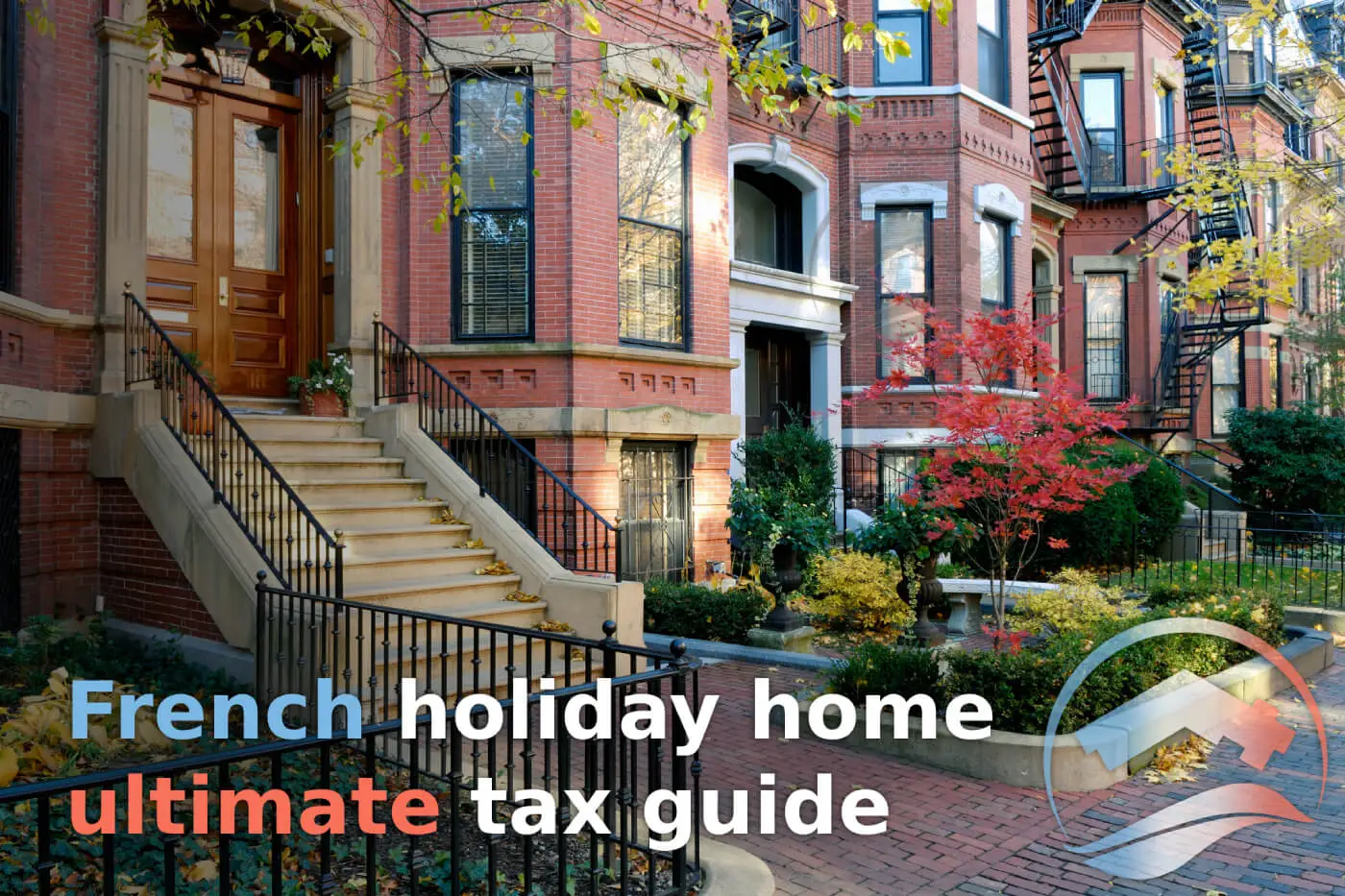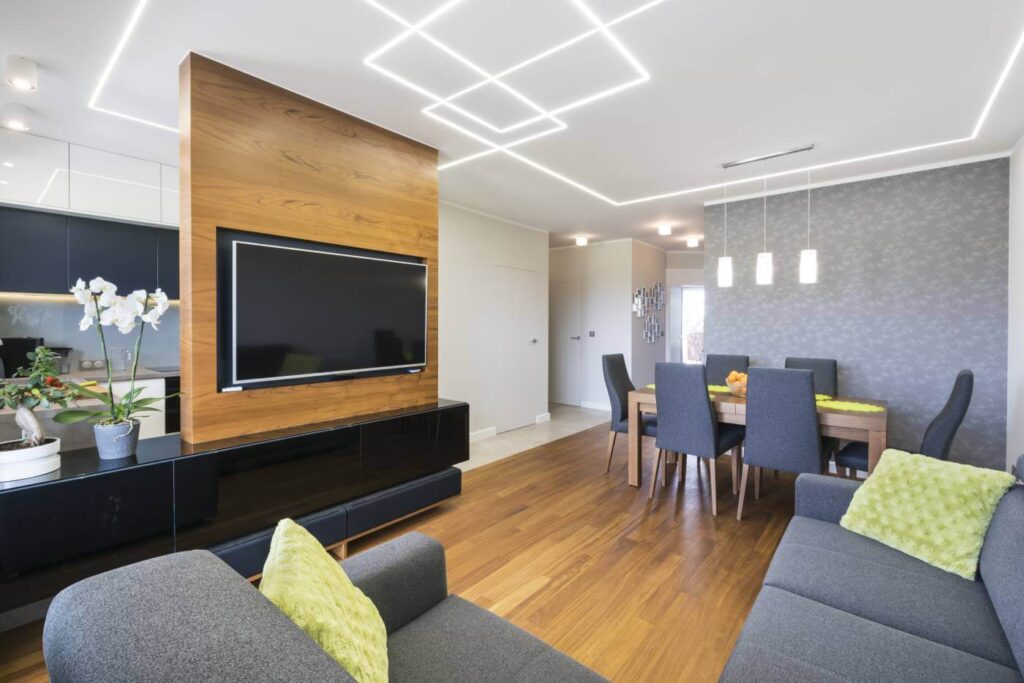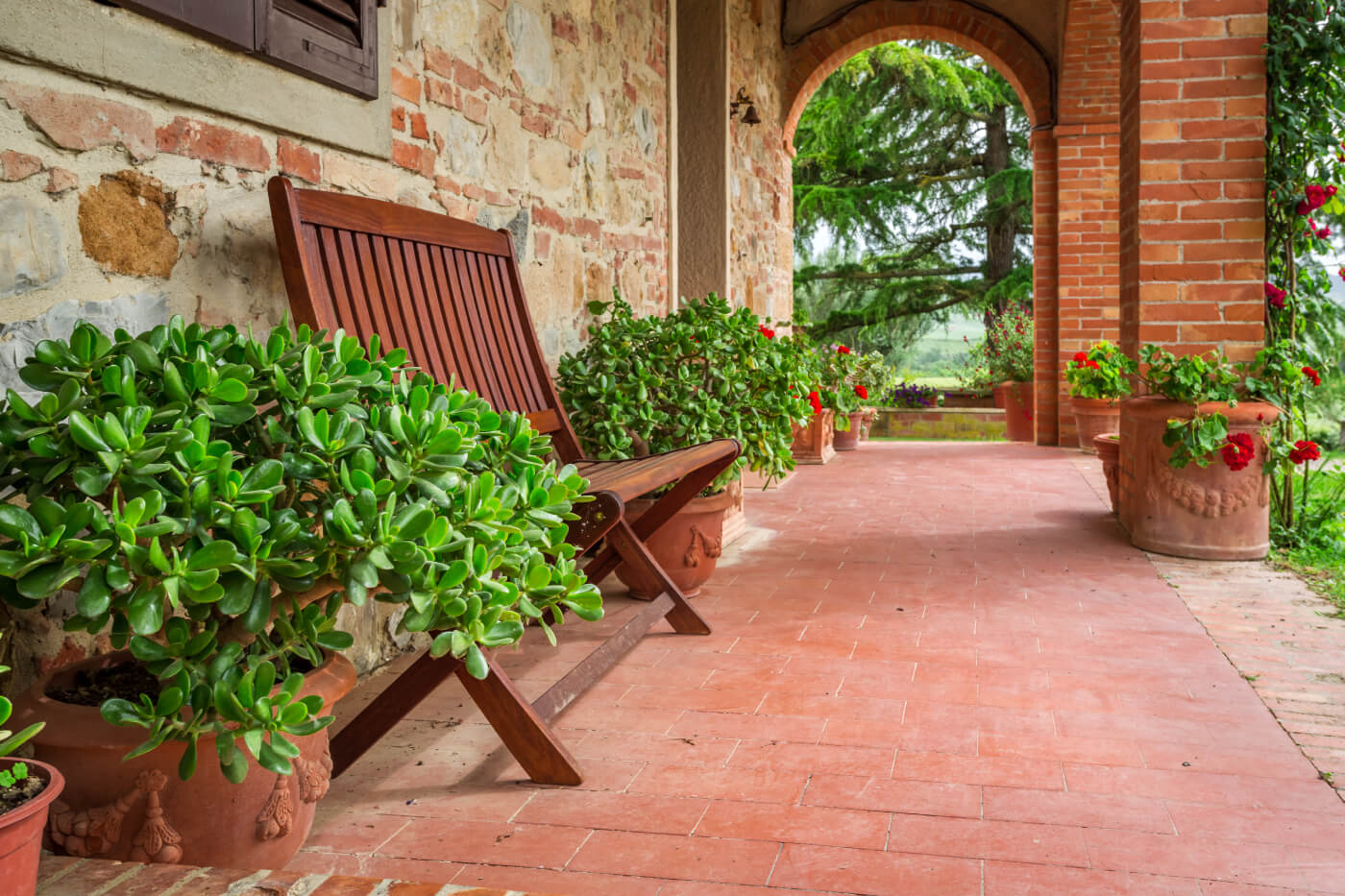Last Updated on October 3, 2025
If you own property in France as a non-resident, it’s important to understand the different French property taxes that apply. Whether you rent out a Paris apartment, maintain a holiday home in Provence, or plan to sell a French villa, you’ll face taxes at different stages of ownership.
This 2025 guide explains the main French property taxes for foreigners, including:
-
Taxe foncière (land and ownership tax)
-
Taxe d’habitation (housing tax for second homes)
-
Rental income tax on furnished and unfurnished properties
-
Capital gains tax when selling real estate
-
Wealth tax (IFI) on high-value property holdings
-
VAT on new-builds and investment properties
👉 Need help filing your French property tax return as a non-resident? Apply with PTI Returns for expert assistance.

French Property Tax Overview for Non-Residents
Property taxes in France depend on the type of property you own and how you use it. As a non-resident, you will generally pay at least one of the two main annual taxes:
-
Taxe foncière – paid by all property owners, based on the cadastral rental value of the property.
-
Taxe d’habitation – still charged on second homes and holiday homes, even though it has been phased out for most primary residences.
In addition, you may be liable for:
-
Rental income tax, if you earn income from renting your property.
-
Capital gains tax, if you sell the property at a profit.
-
Wealth tax (IFI), if the net value of your French real estate holdings exceeds €1.3 million.
-
VAT, on certain new builds or furnished rental investments.
👉 Tip: Tax rules differ for residents and non-residents. As a foreign owner, you should always check how bilateral tax treaties affect your obligations in both France and your home country.
Taxes on Buying Property in France
If you purchase property in France, you will pay certain upfront taxes and fees, in addition to the ongoing annual property taxes.
Main Taxes and Fees
-
Registration duties (droits de mutation) – generally 5%–6% of the purchase price for existing properties.
-
Notary fees (frais de notaire) – approximately 7%–8% for resale property, and around 2%–3% for new builds.
-
VAT (TVA) – applies to new-builds and off-plan properties, at the standard rate of 20%. In certain investment cases (e.g. furnished tourist residences), part of the VAT may be recovered.
Example Scenarios
-
Buying a resale property worth €200,000: expect roughly €14,000 in notary fees and registration costs.
-
Buying a new-build apartment worth €200,000: add €40,000 VAT (20%), though in some cases this can be reclaimed if the property is rented furnished.
👉 Tip: Always budget for these upfront costs when purchasing French property, as they significantly increase the initial investment.
Rental Income Tax in France (Furnished & Unfurnished)
If you are a non-resident taxpayer and you earn income from renting out your French property, you are required to declare it and file a French property tax return for non-residents (also known as a French income tax return).
📌 Important:
-
There is no reporting threshold. All rental income must be declared, even if the final amount is non-taxable.
-
You may choose to calculate your rental tax using the average rate for your worldwide income. If not, a minimum rate of 20% applies for earnings up to €28,797 and 30% above this amount.
-
Social charges apply in addition to income tax.
Tax Rates for Non-Residents
-
EU residents: 27.5% combined (20% income tax + 7.5% social charges).
-
Non-EU residents: 37.2%–47.2%, depending on income level (20%/30% income tax + 17.2% social charges).
Unfurnished Rentals (Location vide)
If you rent out an unfurnished property, there are two main tax regimes:
-
Régime Micro-Foncier (simplified)
-
Available if annual rental income is under €15,000.
-
A flat-rate 30% deduction is applied.
-
Only gross rental income is declared.
-
-
Régime Réel (actual expenses)
-
Applies if annual income is over €15,000, or if you opt in.
-
You deduct actual property expenses (repairs, maintenance, insurance, loan interest, etc.).
-
Requires filing additional forms with your annual return.
-
Furnished Rentals (Location meublée)
If your property is rented furnished, taxation falls under the BIC regime (Bénéfices Industriels et Commerciaux). Two options exist:
-
Régime Micro-BIC
-
For annual income under €77,700.
-
Flat-rate 50% deduction.
-
Only gross rental income is declared.
-
-
Régime Réel Meublé
-
Applies if income exceeds €77,700, or if you choose to be taxed under this system.
-
Deducts actual expenses, such as depreciation of furniture, maintenance costs, and utilities.
-
More paperwork but often results in lower taxable income.
-
📞 Tip: Choosing the right regime (micro vs réel) can make a big difference in your tax bill. A French property tax advisor can help determine the most tax-efficient option for your situation.
Capital Gains Tax in France for Non-Residents
When you sell property in France, you may be subject to capital gains tax (CGT). The rules apply to both residents and non-residents, with some differences depending on your country of residence.
Standard Capital Gains Tax Rate
-
Capital Gains Tax (CGT): 19%
-
Social charges: 17.2%
-
Total charge: 36.2%
👉 Since 2015, there is no longer a higher CGT rate for non-residents living outside the European Economic Area (EEA).
Taper Relief (Allowance Over Time)
The longer you own a property, the more relief you receive on CGT and social charges.
Capital Gains Tax relief:
-
Years 1–5: No allowance
-
Years 6–21: 6% per year
-
Year 22: 4%
➡️ Full CGT exemption after 22 years of ownership
Social Charges relief:
-
Years 1–5: No allowance
-
Years 6–21: 1.65% per year
-
Year 22: 1.6%
-
Years 23–30: 9% per year
➡️ Full exemption from social charges after 30 years of ownership
Capital Gains & Social Charges Allowances
| Ownership Period | Capital Gains Tax Allowance | Social Charges Allowance |
|---|---|---|
| 1–5 Years | 0% | 0% |
| 6 Years | 6% | 1.65% |
| 10 Years | 30% | 8.25% |
| 15 Years | 60% | 16.5% |
| 20 Years | 90% | 24.75% |
| 22 Years | 100% (exempt) | 28% |
| 30+ Years | N/A | 100% (exempt) |
Exemptions for Non-Residents
Some non-residents may qualify for capital gains tax exemptions if specific conditions are met:
-
Sale occurs within 10 years of leaving France, OR
-
The property has not been rented or occupied since January 1 of the year before sale, OR
-
You were a French tax resident for at least 2 years before the sale.
📌 Conditions:
-
Exemption applies to one property per tax household.
-
Net taxable gain must not exceed €150,000.
-
Also available to nationals of non-EU countries with non-discrimination tax treaties with France.
UK & EEA Residents
-
Non-residents from the EEA pay the standard 19% CGT but benefit from reduced social charges (replaced by a 7.5% solidarity tax instead of 17.2%).
-
Since Brexit, UK residents now pay the full 17.2% social charges on top of CGT.
📞 Tip: A French property tax advisor can calculate whether you qualify for exemptions or relief on CGT, and help avoid unnecessary overpayment.
👉 Need help filing your French rental income tax return? PTI Returns can prepare and submit it online for you.
Taxe d’Habitation (Housing Tax in France)
The taxe d’habitation is a yearly property tax imposed on furnished second homes, including related structures like garages and outbuildings.
-
Primary residences: largely abolished since 2018.
-
Second homes/holiday homes: still subject to taxe d’habitation.
How It Works for Non-Residents
-
If your primary residence is outside France, any property you own in France is treated as a second home, even if it’s your only property in the country.
-
Properties rented out long-term as someone else’s main residence are generally tax-exempt for the owner, as the tenant is liable.
-
Short-term holiday rentals may qualify for exemption if the owner pays the Cotisation Foncière des Entreprises (CFE).
Key Calculation Points
-
Tax depends on the property’s characteristics, including size, location, and condition.
-
Rates vary by municipality.
-
For vacant properties, Taxe d’Habitation is usually not due unless the town has more than 50,000 residents (then a tax on vacant housing – TLV applies).
Deadlines & Payment
-
Tax notices are sent end of August / early September to the property address or uploaded online.
-
Payment deadlines vary, but generally mid-November.
Who Pays the Tax?
-
Owner – if the property is vacant.
-
Occupant on January 1st – owner or tenant if the property is occupied.
-
If a tenant moves in after January 1st, the tax is still the owner’s or tenant’s responsibility on January 1st.
📌 Tip for Non-Residents:
Even if your property is only used occasionally, you may still owe taxe d’habitation. Check with your local mairie or a French tax advisor to confirm your obligations.
Taxe Foncière – French Land/Property Ownership Tax
The Taxe Foncière is an annual local property tax imposed on all property owners in France, whether the property is occupied, rented, or vacant.
-
Applies to all properties: houses, apartments, land, and outbuildings.
-
Payable by the owner on January 1st of each year.
-
Includes additional charges, such as taxe d’enlèvement des ordures ménagères (garbage collection), depending on the municipality.
Taxe Foncière vs. Taxe d’Habitation
| Tax | Who Pays | Purpose |
|---|---|---|
| Taxe Foncière | Property owner | Annual property ownership/land tax |
| Taxe d’Habitation | Occupant on January 1 (owner or tenant) | Tax for using the property as a residence |
✅ Key Difference: Taxe Foncière is on ownership, Taxe d’Habitation is on residency/occupancy. Both apply to residents and non-residents.
Payment & Deadlines
-
Taxe Foncière notice is usually issued in September, with payment due by 15 October.
-
Online payments extend the deadline to 20 October (or 25th with a bank levy).
-
Monthly installments may be arranged upon request.
-
Late payments incur a 10% penalty.
-
Taxe d’Habitation notices are sent late September / early October, with payment due by 15 November.
-
CFE tax bills are due by 15 December annually.
📌Tip for Non-Residents:
Even if your property is vacant, you must pay Taxe Foncière. Using a French tax advisor can ensure all exemptions, allowances, or overpayments (e.g., CFE refund) are applied correctly.
Wealth Tax in France (IFI – Impôt sur la Fortune Immobilière)
The IFI is an annual property wealth tax in France, payable if the total value of your taxable French real estate exceeds €1.3 million on January 1st of the year.
-
Only real estate located in France is counted for non-residents.
-
Tax treaties between your country and France may affect liability.
Taxable Assets
Assets included in IFI calculations:
-
Apartments, houses, and outbuildings (garages, cellars, parking)
-
Buildings, including historical monuments
-
Buildings under construction
-
Agricultural land, building plots, and other non-built land
-
Fractions of buildings held via shares in property companies
Exemptions include:
-
Rural properties leased long-term
-
Forests and woods
-
Real estate rights not considered professional property
IFI Tax Rates (2025)
| Fraction of Net Taxable Assets | Rate of Tax |
|---|---|
| €0 – €800,000 | 0% |
| €800,001 – €1,300,000 | 0.50% |
| €1,300,001 – €2,570,000 | 0.70% |
| €2,570,001 – €5,000,000 | 1% |
| €5,000,001 – €10,000,000 | 1.25% |
| €10,000,001+ | 1.50% |
📌 Note: Calculation starts from €800,000; a discount applies on net wealth between €1.3–1.4 million.
Deductible Debts
Certain debts may reduce your taxable IFI base:
-
Related to taxable real estate
-
Dependent on a member of your tax household
-
Must exist as of January 1st of the tax year
Examples:
-
Property improvements, extensions, or reconstruction
-
Maintenance and other real estate-related taxes
Filing & Deadlines
-
IFI is filed annually, usually by end of May / early June.
-
Non-residents may consult a French property tax advisor to ensure proper reporting, exemptions, and deductions.
📞 Tip for Non-Residents:
Engaging a French tax expert helps minimize IFI liability, avoid errors, and comply with French legislation.
CFE Tax & VAT on French Property
Cotisation Foncière des Entreprises (CFE)
The CFE tax is an annual tax paid by owners of furnished rental properties in France.
-
Calculated based on the theoretical rental value of the property.
-
Leaseback or unfurnished properties are usually exempt.
-
Typical range: €100 – €1,500.
Exemptions
-
First year of ownership
-
Annual turnover below €5,000
💡 Tip: Many property owners overpay CFE and are entitled to a refund. PTI Returns can assist in claiming this.
VAT on Buy-to-Let Property
-
Standard VAT rate: 20%
-
Reduced rates apply in special zones:
-
ANRU zones (urban renovation)
-
QPV (priority districts)
-
Rate can drop to 5.5%
-
VAT Refund Opportunity
-
Buyers who rent out newly built leaseback property in tourist areas may recover 20% VAT refund.
-
Conditions:
-
If property is sold before 20 years, pro-rata VAT must be repaid.
-
If removed from the real estate market, a portion of VAT is repaid based on years held.
-
📞 Tip: PTI Returns can assist with VAT submission and claiming refunds.
Avoiding Overpayment, Deadlines, and Special Cases
Owning property in France can be complex for non-residents. Proper planning and expert guidance can help avoid overpaying taxes and stay compliant.
How to Avoid Overpaying Tax on Rental Income
-
French tax requirements are complex, with multiple forms, rules, and exemptions.
-
Seeking advice from a French property tax professional can:
-
Minimize tax liability
-
Identify eligible deductions
-
Ensure correct filing
-
-
Both furnished and unfurnished rental properties have specific regimes (Micro-Foncier, Régime Réel, Micro-BIC, Régime Réel Meublé).
-
Choosing the most advantageous regime can significantly reduce your tax bill.
Deadlines for Filing French Income Tax Returns
-
Deadlines vary by département (101 regions) and are announced in late spring.
-
Examples for 2024:
-
31/03/2024 – Leaseback & furnished lettings (business tax returns)
-
15/04/2024 – Non-furnished & Micro income tax returns
-
Late Filing Penalties
| Delay | Penalty |
|---|---|
| Before formal notice from tax office | 10% |
| Within 30 days of notice | 20% |
| More than 30 days after notice | 40% |
| Undeclared or illegal activity discovered | 80% |
-
Late interest may also apply.
-
Even if no tax is due, a declaration is required to obtain a notice of non-taxation.
UK Resident Landlords After Brexit
-
UK residents are no longer EU citizens, affecting French tax rules.
-
Rental profits are taxed under the double taxation agreement between France and the UK.
-
Rates:
-
Up to €28,797 – 20%
-
Above €28,797 – 30%
-
-
Social charges for UK citizens increased from 7.5% to 17.2% (CSG + CRDS + PSOL).
-
Furnished rentals must have a SIRET number, as they are treated as commercial activity.
US Resident Property Owners
-
If the property is not rented, only keep records of purchase, costs, and expenses.
-
Rented properties must be declared on a French tax return.
-
Capital gains:
-
CGT: 19%
-
Social charges: 17.2% for residents, 15.5% for non-residents
-
-
Sales after 30 years may be exempt due to taper relief.
-
US filing:
-
Report on Schedule D and Form 8949
-
Claim foreign tax credits on Form 1116
-
📞 Tip: A French property tax advisor can help navigate international tax treaties, claim deductions, and ensure compliance for UK and US residents.
Summary & Filing Assistance
Owning French property as a non-resident involves multiple taxes, filing requirements, and deadlines. Understanding your obligations can save money, reduce stress, and ensure compliance.
Key Takeaways
-
Property income taxation: Non-residents pay tax on French-source rental income.
-
Double taxation: You may be considered a tax resident in two countries; check double taxation agreements to avoid paying twice.
-
French property taxes: Local taxes, income tax, capital gains tax, wealth tax (IFI), Taxe Foncière, and Taxe d’Habitation may apply.
-
VAT refunds: Possible for newly built leaseback rental properties.
-
Deadlines matter: Late filing can lead to penalties from 10% up to 80%.
-
Country-specific rules: UK and US residents have additional considerations post-Brexit or under US tax law.
Filing Assistance
For non-resident property owners, professional guidance can simplify filing and minimize tax liability.
How PTI Returns Helps
-
Handles all French property tax filings online.
-
Applies international tax agreements and allowable deductions.
-
Communicates directly with the French tax authorities.
-
Provides multilingual support via phone and email.
-
Keeps clients updated on legislation changes.
Services Offered
-
Filing income, wealth, and rental tax returns
-
Claiming VAT refunds and CFE overpayments
-
Ensuring compliance for UK and US residents
-
Reducing the risk of late penalties or overpayment
📞 Tip: Using a professional property tax service ensures you maximize deductions, remain compliant, and save time.





